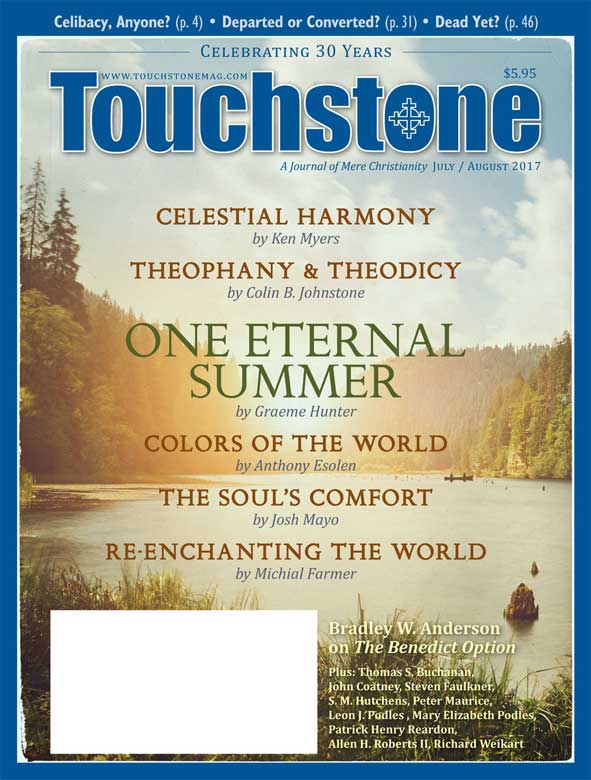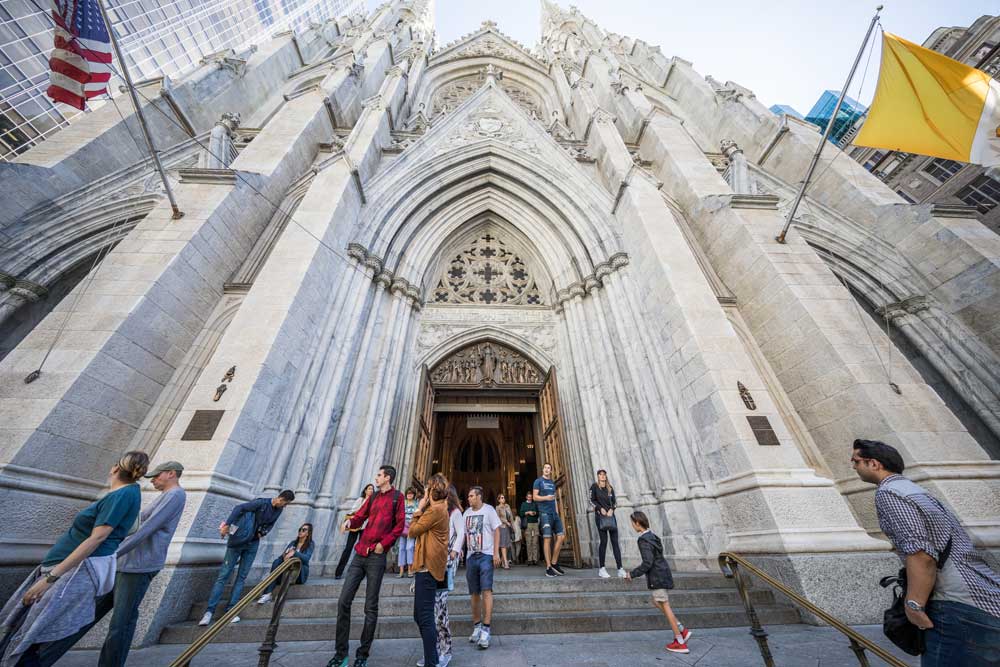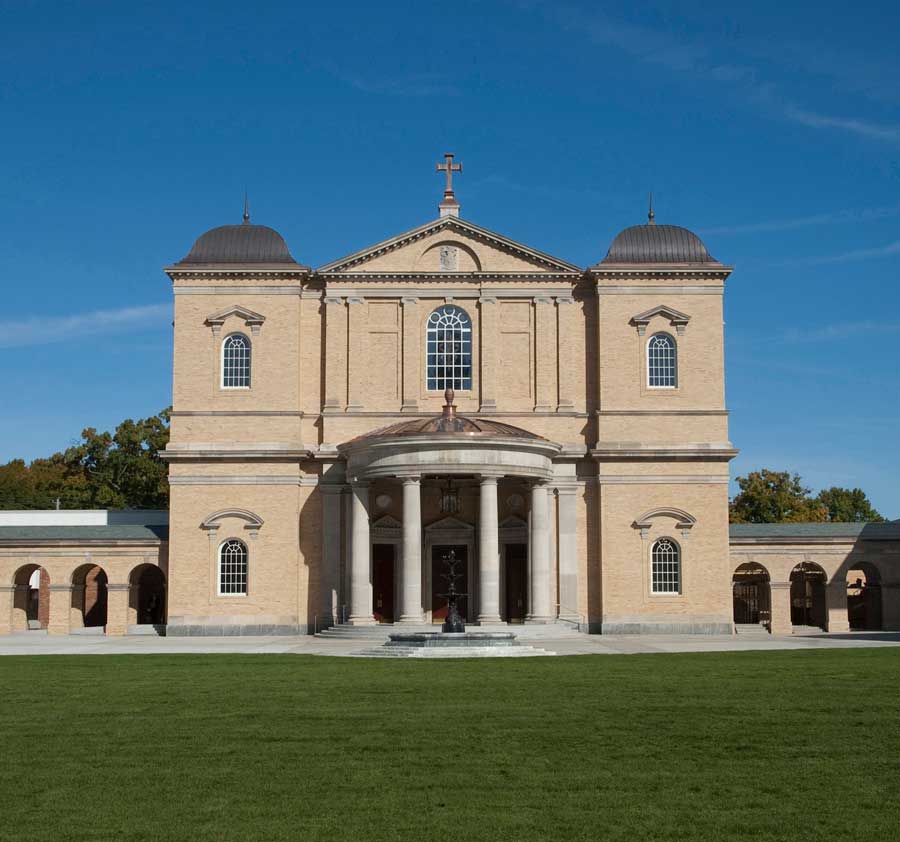Editorial
Editing Vice & Virtue
Some Saints Acted Badly
In 2003 I had the privilege of being awarded a visiting professorship at a university in Australia. I was told that the funds for the professorship came from a large endowment given by a woman who had been a successful Australian hotelier and had left her fortune to the university for the purpose of advancing medical research. After working there for a couple of months, I found out that "hotelier" was a euphemism and that the woman had actually made her fortune running brothels across the Australian frontier. My Aussie colleagues referred to me, with relish, as the Professor of Prostitution, and the university still gives out this prestigious award named after the woman to several people each year.
Often we formally name churches, companies, schools, awards, cities, and so forth after people whose virtues we admire. This is especially noticeable when we study geography or consider the names of institutions. So common is the practice that we often forget—if we ever knew—the person for whom such things are named. I have climbed Mount Whitney, but I do not know who Mr. Whitney was or what he did. I went to Cadman Elementary School but do not recall what were Mr. Cadman's contributions to society.
Leftist Purging
Currently there is a movement in our country to apply principles of social justice to purge the land of the names of those who do not adequately represent modern values. Hence, we see Yale University renaming Calhoun College because Congressman Calhoun was from South Carolina in the early 1800s and, despite possessing many other virtues, was an advocate for slavery. We also see administrators of the Rhodes Scholar program at Oxford debating whether the program should disassociate itself from the Rhodes name. After all, Cecil John Rhodes wrote in his will that his express purpose in establishing the scholarship was for "the furtherance of the British Empire, for the bringing of the whole uncivilised world under British rule, for the recovery of the United States, [and] for the making of the Anglo-Saxon race but one Empire," and that through the scholarship he "aimed at making Oxford University the educational centre of the English-speaking race." These are strong words for some modern ears.
Of course, there is much silliness associated with dissociating oneself from the past. Students at the University of Pennsylvania removed a large portrait of William Shakespeare from the halls of their English Department and replaced it with a photograph of the black feminist poet Audre Lorde, a literary figure with whom I am as familiar as I am with Whitney and Cadman.
In the South, anything associated with the Civil War seems to be a target for culture warriors on the left. City parks and statues memorializing the war heroes are being renamed and removed at a rapid pace.
Perhaps these things should be considered signs of a culture war that has been lost. Constantinople became Istanbul after it fell to the Muslims, and St. Petersburg became Leningrad after the fall of the czar. Naming rights go to the victors in battle.
The Christian View
As Christians, we generally take a somewhat different view of virtue and vice than do those engaged in the renaming movement. We know that all are sinners. Yet we admire those who performed great deeds, in spite of their sins. We see that this is the way God treats his saints. Rahab was a prostitute, yet she is honored in the Bible. Moses was a murderer, yet God chose him to lead his people to freedom. King David was an adulterer and murderer, yet he holds highest honors as the poet laureate of the Church.
Among the early Christian saints were many people who acted badly: Peter denied Christ, and Paul persecuted the first Christians (instigated lynchings?). There are many other Christian saints and leaders whom we honor, including the likes of Moses the Robber, Mary of Egypt (a former prostitute), and Dietrich Bonhoeffer (who planned a murder). Every sinner has an opportunity to repent and replace sin with virtue. To me, a madam donating her fortune for medical research falls into this category.
Thomas S. Buchanan is the George W. Laird Professor of Mechanical Engineering and Biomedical Engineering at the University of Delaware. He has studied at UCSD, Northwestern University, and MIT, and has held visiting professorships at the University of Western Australia and the University of Aix-Marseille. He has served as department chairman, deputy dean, and institute director, president of the American Society of Biomechanics, and editor-in-chief of the Journal of Applied Biomechanics. He is on the Board of Trustees of Saint Katherine College, the editorial board of Touchstone, and the board of The Fellowship of St. James.
subscription options
Order
Print/Online Subscription

Get six issues (one year) of Touchstone PLUS full online access including pdf downloads for only $39.95. That's only $3.34 per month!
Order
Online Only
Subscription

Get a one-year full-access subscription to the Touchstone online archives for only $19.95. That's only $1.66 per month!
bulk subscriptions
Order Touchstone subscriptions in bulk and save $10 per sub! Each subscription includes 6 issues of Touchstone plus full online access to touchstonemag.com—including archives, videos, and pdf downloads of recent issues for only $29.95 each! Great for churches or study groups.
Transactions will be processed on a secure server.
more from the online archives
calling all readers
Please Donate
"There are magazines worth reading but few worth saving . . . Touchstone is just such a magazine."
—Alice von Hildebrand
"Here we do not concede one square millimeter of territory to falsehood, folly, contemporary sentimentality, or fashion. We speak the truth, and let God be our judge. . . . Touchstone is the one committedly Christian conservative journal."
—Anthony Esolen, Touchstone senior editor










